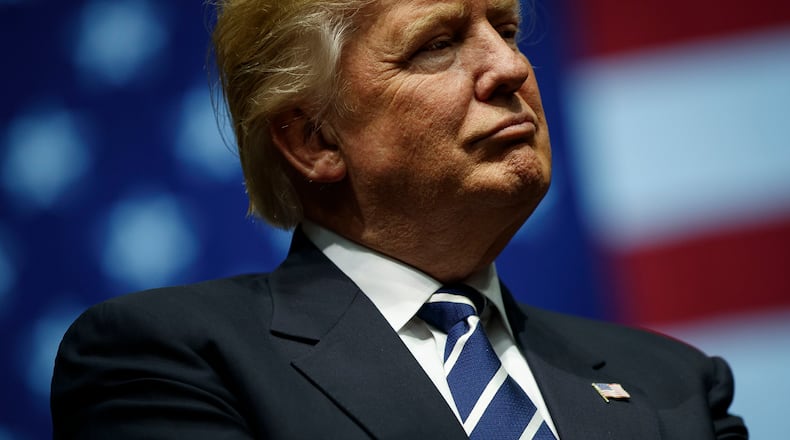A top Senate Democrat has demanded a full investigation into President-elect Donald Trump's victory after U.S. intelligence assessments concluded that Russian influences impacted the November election, the Associated Press reported.
According to The Washington Post, the CIA has finished a secret assessment in which the organization was able to conclude with "high confidence" that Russian actors were interfering in the election in ways that benefited the Trump campaign, a senior U.S. official said.
"It is the assessment of the intelligence community that Russia's goal here was to favor one candidate over the other, to help Trump get elected," a senior U.S. official told the Washington Post. "That's the consensus view."
Here are five things to know:
1. Trump has consistently denied claims of Russian interference throughout the election.
"I don't believe they interfered," Trump told Time magazine of Russian hackers this week. He said the hackers "could be Russia. And it could be China. And it could be some guy in his home in New Jersey."
2. Trump believes Democrats encouraged the claims.
"I think the Democrats are putting it out because they suffered one of the greatest defeats in the history of politics in this country," Trump said on Fox News Sunday. "And frankly, I think they're putting it out, and it's ridiculous."
Republican National Committee communications director Sean Spicer told CNN there were "people within these agencies who are upset with the outcome of the election."
3. Trump challenged US intelligence officials and the accuracy of information gathered and released.
"If you look at the story and you take a look at what they said, there's great confusion," Trump said. "Nobody really knows, and hacking is very interesting. Once they hack, if you don't catch them in the act, you're not going to catch them. They have no idea if it's Russia, or China, or somebody. It could be somebody sitting in a bed someplace. I mean, they have no idea."
In a statement released Friday, Trump's transition team said the CIA "are the same people that said Saddam Hussein had weapons of mass destruction,” in reference to the agency’s misjudgments on Iraq's weapons of mass destruction.
Trump's public dismissal of the CIA assessment has fueled concern and criticism from those who fear a Trump presidency may mistreat information from intelligence agencies during his term.
"It sets up one of the great crises in the history of the executive branch," said Glenn Carle, a former senior CIA officer. "All the agency can do short of insurrection is to present the facts when allowed to the executive we serve."
Rep. Adam B. Schiff (D-Burbank) said Trump's rejection of US intelligence information means "he is willing to disparage the intelligence community when it benefits him."
4. Republicans and Democrats have united in talks about the issue.
"Democrats and Republicans must work together and across the jurisdictional lines of the Congress to examine these recent incidents thoroughly and devise comprehensive solutions to deter and defend against further cyberattacks," four Republican and Democratic senators said in a statement Sunday morning. "This cannot become a partisan issue. The stakes are too high for our country. We are committed to working in this bipartisan manner, and we will seek to unify our colleagues around the goal of investigating and stopping the grave threats that cyberattacks conducted by foreign governments pose to our national security."
The statement came from Senate Armed Services Committee Chairman John McCain (R-Ariz.), committee member Lindsey Graham (R-S.C.); incoming Senate Minority Laeder leader Charles E. Schumer (D-N.Y.) and Armed Services Committee ranking member Jack Reed (D-R.I.).
5. Despite the assessment, Julian Assange, the founder of WikiLeaks, has said that the Russian government was "not the source" of the more than 30,000 emails leaked from Hillary Clinton’s private email server.
"The Clinton camp has been able to project a neo-McCarthyist hysteria that Russia is responsible for everything," Assange told Australian broadcaster John Pilger in a November interview. "Hillary Clinton has stated multiple times, falsely, that 17 US intelligence agencies had assessed that Russia was the source of our publications. That's false. We can say that the Russian government is not the source."
The White House and CIA officials have yet to comment.
"If (US intelligence agencies are) so certain it happened, why won't they go on the record and say it?" Spicer said Saturday during a CNN interview.
Read more at The Washington Post.
About the Author
The Latest
Featured


